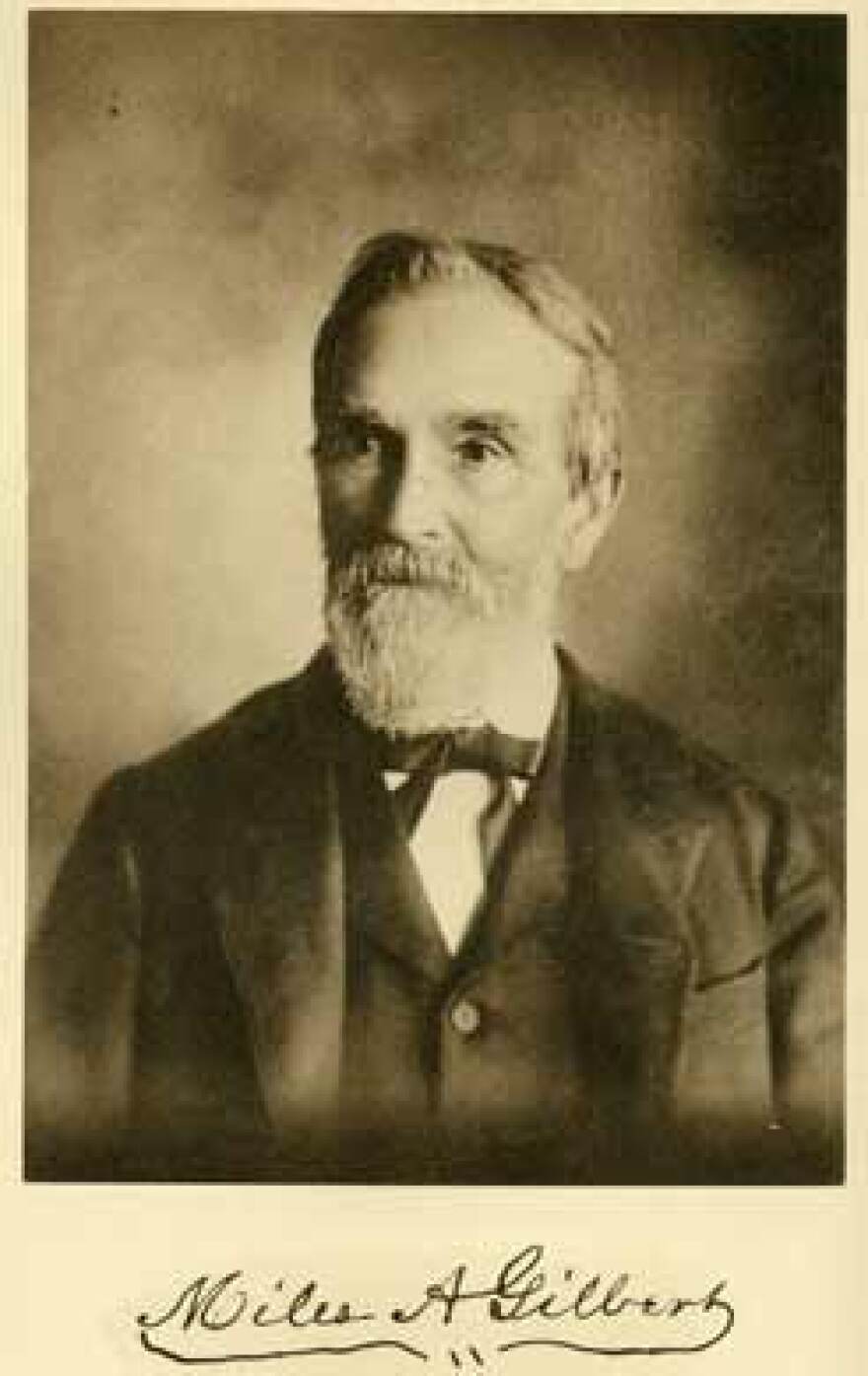Most settlements and communities in Missouri date back to the 19th century. Typically, an early settler or group of settlers either established the community or lent their names to it. However, it is rare to have more than one town founded by an individual. Judge Miles A. Gilbert was an exception. During his life he platted two towns: Cairo in Illinois and St. Mary in Ste. Genevieve County. Both prospered during Judge Gilbert’s lifetime but have fallen on harder times today, obscuring his importance.
Born in Hartford, Connecticut, on January 1, 1810, Miles came to Kaskaskia, Illinois, in summer 1832 and prospered over the next 11 years in the mercantile business. He married Ann Eliza Baker, daughter of Senator David J. Baker Sr., at Kaskaskia in 1836.
In April 1843, he became agent for the Cairo City & Canal Company. Prior to Gilbert’s arrival, half-hearted attempts to establish a town at the site failed. The settlement languished until a group of investors bought much of the land and formed the Cairo City and Canal Company. The area began to attract settlers, but the climate discouraged many and settlers could only lease land. By 1840, efforts to build a railroad to the site ceased, the bank failed, and most residents left. An 1842 flood washed away most of the buildings, because only two levees protected the town site, one on the Mississippi side and the other on the Ohio side.
A substantial number of men lost their jobs. When Gilbert arrived in Cairo, a mob formed and threatened to break into a large building containing the machine and carpenter shops, detach the expensive machinery, and sell it under execution. The ring leaders went to Gilbert and demanded entry to the building. He had no authority to grant the request, but they swore they would do so at all hazards. Gilbert then recruited four of the employees still loyal to the company, and managed to protect the building using talk, threats, and physical force to hold off the mob.
Once the trustees secured financial backing, Gilbert built a cross levee to unite the existing two levees and repaired the original two. The resulting system enclosed roughly 600 acres and was strong enough to protect Cairo during the Great Flood of 1844. For the next three years, Miles Gilbert remained in Cairo, where he became one of the original purchasers of land that later comprised the city and platted the town.
Gilbert moved to Ste. Genevieve County, Missouri thereafter, although he maintained business interests in Cairo. He had large land holdings in Ste. Genevieve County and laid out a new town on one of these, naming it “Ste. Mary.” There he also built his homestead, “Oakwood Villa,” on a hill overlooking the village and with a commanding view of the Mississippi. His skills and connections ensured his election as Judge of the County and Probate Courts of Ste. Genevieve County for three terms thereafter.
Even though Judge Gilbert owned slaves, he was strongly against secession during the crisis of 1860. When Governor Jackson called the State Convention, Gilbert actively secured Union delegates from his district in the face of powerful opposition and ensured the election of pro-Union delegates.
Gilbert spent his last years at “Oakwood Villa,” where he died January 21, 1901, at age 91. Although his lifetime nearly spanned the entire 19th century, local history has largely forgotten his numerous contributions to the region. His gravestone epitaph remembers, though, stating “Honored and loved by all.”



